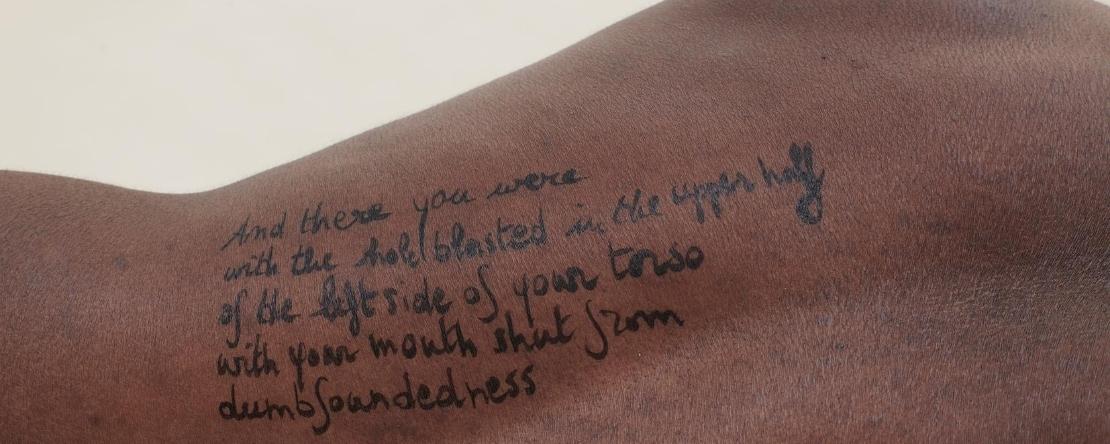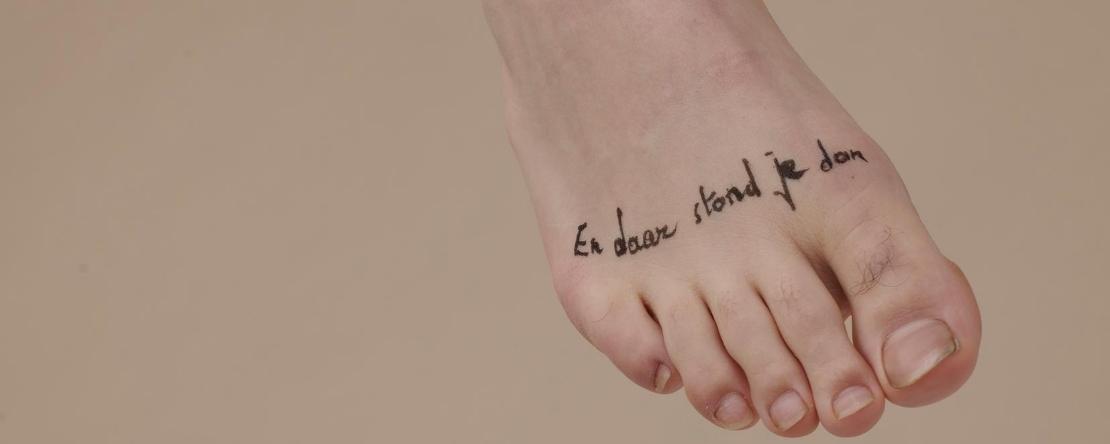- [:swvar:option:104:] [:swvar:option:103:], [:swvar:option:105:]
- Category: poetry
WEG/aWAY +1 jaar (4)
On transience in the body room and adjacent rooms

Ghent - 23 July 2020
Sabine A.M. Martens
WEG/aWAY
+ 1 year (4)
Body room
and adjacent
spaces
Why it must. Body room and adjacent rooms (4)
It must because from the deepest, darkest abyss something can define a way out. Something can develop from it that has meaning if only to move another person.
What I have put into words in the boy room and the rooms adjacent to it, became poetry emerging from a somber, dark soul, a profound inner that can no longer go on because of an unmeasurable heaviness pulling everything down How can this be explained? Sometimes you cannot explain it nor see it
I carry a hereditary burden of being prone to depression from my mother’s side The brother of my grandfather hung himself and the sister of my grandmother walked towards the river Schelde on a snowy morning, stepped out of her shoes into the water My mother’s grandmother spent considerable time in an asylum for the mentally ill but could leave the place as a completely cured woman My mother herself struggled with depression during my entire childhood and youth She took loads of tranquilizers and it was only when a new young physician started a practice in our town she managed to kick off by means of acupuncture
Later I found out that being prone to depression is physical or can be It is the chemistry in your brain that determines you I had my first depression in It took five years till I could acknowledge that I was completely well again. Still, the mood swings remain and I have gone through some difficult periods during the two years prior to the opening of WEG/aWAY.
The reason for that was the confrontation with mortality and aging which I had to deal with. I came across it in various ways. My mother had been degenerating for years and was suffering from dementia. I had felt my body aging over the years and my mind too.
In the body room itself, I show bodies of a different color, age, and texture. They are not a white page but a novel of their own, a portrait, a skin where a mass is present underneath That mass is their being. When those people gave me permission to literally write my poems on their bodies, that act provoked enormous respect. I respected being allowed this act of connection and for me, that felt like being given an encore to my existence.
When the lead withdraws from the heavy moments even for an instance, writing can be done. I am convinced readers will experience recognition although this is not my first motive.
A psychologist who visited my exhibition didn’t make the connection between the woman who welcomed him and who showed him the publication that was part of the exhibition, and the artist. The poems in some rooms reminded him of patients. He wasn’t that far off but still, he made the distinction we/them. We the healthy, them the troubled ones. However, also in this matter, there is no we and no them, because the artist whom he was facing turned out to be both we and them.



